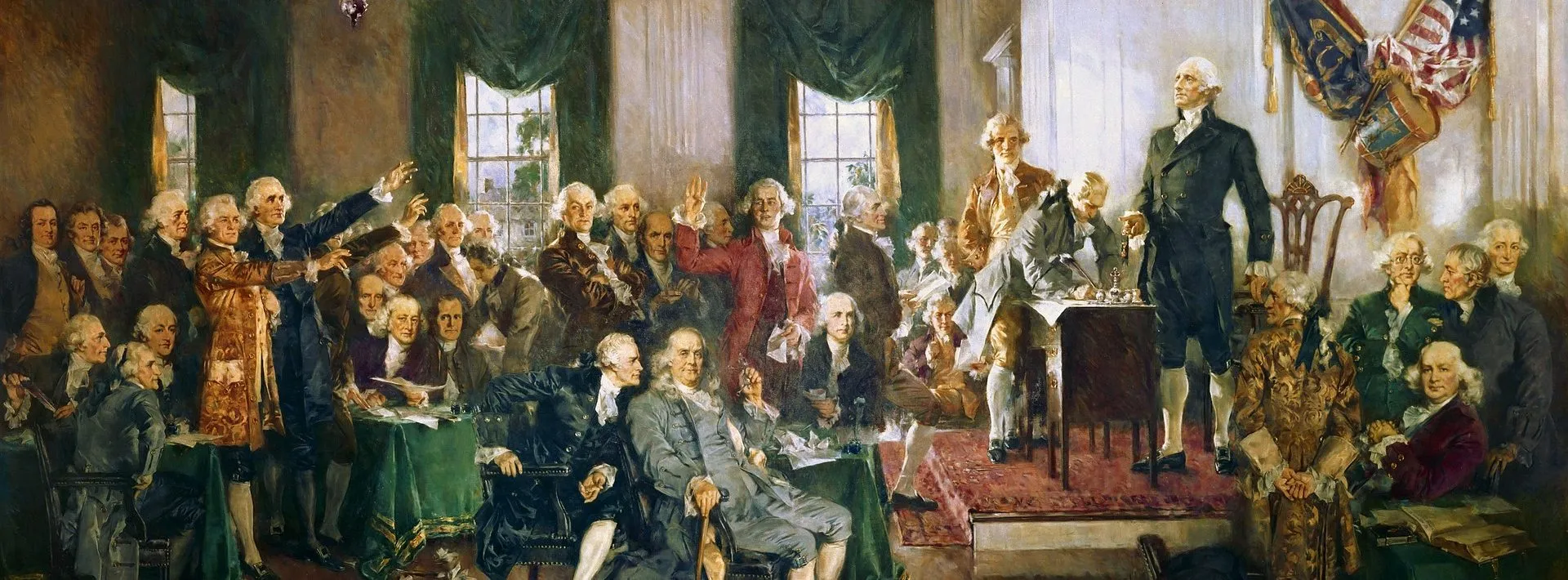“Therefore whoever confesses Me before men, him I will also confess before My Father who is in heaven. But whoever denies Me before men, him I will also deny before My Father who is in heaven” (Matthew 10:32-33)
“And when they had brought them, they set them before the council. And the high priest asked them, saying, ‘Did we not strictly command you not to teach in this name? And look, you have filled Jerusalem with your doctrine, and intend to bring this Man’s blood on us?’ But Peter and the other apostles answered and said: ‘We ought to obey God rather than men.’ “ (Acts 5:27-29)
“So the keeper of the prison reported these words to Paul, saying, ‘The magistrates have sent to let you go. Now therefore depart, and go in peace.’ But Paul said to them, ‘They have beaten us openly, uncondemned Romans, and have thrown us into prison. And now do they put us out secretly? No indeed! Let them come themselves and get us out’ “ (Acts 16:36-37)
“And as they bound him with thongs, Paul said to the centurion who stood by, ‘Is it lawful for you to scourge a man who is a Roman, and uncondemned?’ “ (Acts 22:25)
“But Festus, wanting to do the Jews a favor, answered Paul and said, ‘Are you willing to go up to Jerusalem and there be judged before me concerning these things?’ So Paul said, ‘I stand at Caesar’s judgment seat, where I ought to be judged. To the Jews I have done no wrong, as you very well know. For if I am an offender, or have committed anything deserving of death. I do not object to dying; but if there is nothing in these things of which these men accuse me, no one can deliver me to them. I appeal to Caesar’ “ (Acts 25:9-11)
“Therefore whoever resists the authority resists the ordinance of God, and those who resist will bring judgment on themselves…Render therefore to all their due: taxes to whom taxes, customs to whom customs, fear to whom fear, honor to whom honor” (Romans 13:2, 7)
“Therefore submit yourselves to every ordinance of man for the Lord’s sake, whether to the king as supreme, or to governors, as to those who are sent by him for the punishment of evidoers and praise of those who do good. For this is the will of God, that by doing good you may put to silence the ignorance of foolish men–as free, yet not using liberty as a cloak for vice, but as bondservants of God. Honor all people. Love the brotherhood. Fear God. Honor the King” (1 Peter 2:13-17)
Last week’s set of Supreme Court decisions from King v. Burwell to Obergefell v. Hodges not only scream the latest triumph for postmodernism in a long series of cultural battles, it brings home to Christians the failure of a passive co-existence. Trusting on institutions or individuals to fight their battles, enough Christians have opted for a life that focuses on comfortable evangelism, if they evangelize at all. By arguing that the mission is to save souls not address government policy, the comprehensiveness of the Great Commission is denied for something less strenuous and more relaxing to our lifestyles, which have enjoyed the insulation of legal protection for most of this country’s history. Biblical perspective most certainly engages the culture. It is a confrontation with the worldviews around us. It cannot be any other way and still remain biblical. To adopt a mission that waits for the world to come to us, sits silently by for Christ to come back while false worldviews go unchallenged in the public square, in order to be seen as understanding and law-abiding, is simply a complicit marginalization of what Christ called us to do. By complying with our incremental removal from the public arena, fewer hear the truth at all levels of society. Evangelism is broader than the personal one-on-one Bible study. Christ said, “Go into all the world.” How can we amend it in practice to mean, “Go to the places that agree with you” or “Go into all the world..just stay out of the courthouse and Washington”? Paul appealed his case all the way to Caesar, allowing his dispute to traverse the Roman legal system when he could have dropped the issue and been freed, just as Agrippa noted.[1] Why? Why did Paul rebuke the Philippian magistrates[2] for their unjust and arbitrary administration when he could have quietly left the prison as any decent, peaceful follower of Christ could have done? Why again did Paul say anything at all about the lawfulness of beating a Roman citizen,[3] when he could have let the matter alone? He did so because he knew reaching lost souls includes engaging the culture, all of it, including the institutions of law and government.
In another very real way, for all of Rome’s severity and later persecutions, the church entered a Roman world that possessed a freedom we are fast losing, a freedom to speak and practice. The press statement of Penn Live/The Patriot News in Harrisburg is but the beginning of the end for allowing opinions that do not agree with gay marriage.[4] The subsequent retraction, that its editorial board will allow op-eds “for now,” is hardly reassuring. The personal beliefs of five lawyers are eroding genuinely fundamental liberties understood and respected for over two centuries by Americans of all persuasions. That erosion will only accelerate if Christians concede. Laws that protected the free exercise of religion and the unabridged freedom to speak, rights clearly stated in the First Amendment, will only tumble before the Court’s new-found “liberties.” We could lose the entire Bill of Rights tomorrow but this does not alter the freedom it merely recognizes; It is an unalienable right originating from God. Helping to jettison the legal protections of marriage and conscience by our silence forfeits an opportunity to reach even more souls, witnessing to the world that these transcend time and culture.
As if the violence done to our constitutional and social traditions is not horrendous enough, carrying implications for everyone, the conflict over objective meaning and conscience is only going to worsen with retreat. This is especially so when reaching the lost excludes engaging the whole culture. Who can imagine uttering today anything like what Paul said to those on the Areopagus before any court, council or committee? How many governors have heard someone reason about “righteousness, self-control, and the judgment to come”[5] in any of our States? Are those in public office, including the ones who identify as “evangelical Christians” somehow off-limits or not our concern? Felix himself had a “more accurate knowledge of the Way” and yet still needed to be reached. Are we that fearful of either violating the creed of political correctness or the perceived separation of church and state that fulfilling the entire mandate of the Great Commission takes a subordinate place? Is this not a surrender to the notion that truth does not exist after all, that words (and thus the ideas they convey) do not have meaning, just as a majority of the Supreme Court declared in both the King and Obergefell decisions?
A human agency or institution can no more reassign what Christians are allowed to say or do regarding the Faith than they can recreate the meaning, scope and purpose of marriage, instituted by God in the Garden. Christ, when questioned why additional laws were built up around marriage in Moses’ time, came back to the original parameters set by God for the ancient institution. Later laws were but concessions to the hard-hearted and close-minded, He declared. He was restoring the institution to its inaugural proportions, that “a man shall leave his father and mother and be joined to his wife, and the two shall become one flesh. So then, they are no longer two but one flesh. Therefore what God has joined together, let not man separate.”[6] Later revisions or deviations were not to persist, according to Christ, marriage was going back to its proper dimensions, as He made clear anything less or more did not constitute “marriage” as “from the beginning it was not so.” As such, these Supreme Court decisions merely recognize the regression of culture, not an advanced morality. The utter impotence of the Court’s decisions in establishing right from wrong and truth from error, having departed from any semblance of objective reality, will only be more evident with time. Should Christians be waiting until the courts are hearing cases for polyamorous “marriages,” as Chief Justice Roberts predicts in his dissent of Obergefell,[7] until we address culture with a biblical perspective?
The Court, as even Justice Thomas observes in his dissent, cannot bestow what is innate, the human dignity that only God gives.[8] The Bible is anything but silent on these subjects of humanity, marriage, and conscience. Should Christians, in the interest of keeping “peace,” avoid those volatile subjects, declining to address the flawed premises on which this Court has ruled because it has nothing to do with “winning souls”? To Paul, the world and the Christian’s role in it were not so neatly compartmentalized as that. To the early Christians, souls needed the Gospel at every strata of society and that meant going where they were. What the Court has done does not change how Christians are to relate to the world. It still means Christians must relate to the world, even taking the biblical perspective into the halls of government. This unavoidably forecasts conflict and a strong likelihood that litigation, including civil and criminal penalties, are coming. The Solicitor General said as much this past spring as the Court heard the arguments of Obergefell, threatening that tax exemptions of religious entities could be targeted if they speak against gay marriage.[9] How long before it moves beyond fiscal policies into the realm of conscience? We certainly follow in the Master’s footsteps, however loud the cries of “bigot” may get or unjust the punishments that may come are, “who, when He was reviled, did not revile in return; when He suffered, He did not threaten, but committed Himself to Him who judges righteously.”[10] But in the effort to bear persecution silently, are we forgetting there is also a time to speak?[11] “For the weapons of our warfare are not carnal but mighty in God for pulling down strongholds, casting down arguments and every high thing that exalts itself against the knowledge of God, bringing every thought into captivity to the obedience of Christ.”[12]
The conflict could devolve upon the next Christian photographer, baker, or even minister who is now expected to furnish service for same-sex couples but declines to do so. What happens then? Peter and Paul are emphatic: “Let every soul be subject to the governing authorities”[13] and ” submit yourselves to every ordinance of man for the Lord’s sake.”[14] Is this an unconditional imperative? The term ktisis (ka-tiss-iss) translated as “ordinance” in Peter’s epistle can be misleading. It is more correctly translated “creature” or “creation,” “the act by which an authoritative or governmental body is created.”[15] The call for submission to these human creations is not an unlimited demand to give our assent to every law passed or statute enacted. Rather, Peter asserts that man has authority from God to found governments, a parallel to Romans 13:1-7. These passages are neutral when it comes to the form government takes or the merit of particular laws, and are not to be interpreted substantively, as the Court has done with the Constitution. In other words, Peter reminds us that man has authorization to create government institutions that legitimately govern human affairs and deserve respect. The principle that “governments are instituted among men” deriving their authority from God is what this text teaches. Nothing more and nothing less. It is not a comprehensive enumeration of lawful from unlawful powers held by government any more than it defines “liberties” as freedom from arbitrary interference upon which authorities must not encroach. What if laws and ordinances contradict, however? Which law governs the Christian in such an instance? Were the apostles in defiance of that command when they stood before government officials and told them, “We ought to obey God rather than men”[16]? What of the midwives in ancient Egypt who feared God, not the king’s command[17], and yet God blessed their civil disobedience? Or what of Daniel, whose continuance of private prayers landed him in a lion’s den, per the law of the land?[18]
Christians have leaned on the traditions of a government friendly to its practice and belief so long that the prospect of real, systematic persecution is a novel and startling prospect. The Lord’s people have experienced it from the beginning and to undergo it again will not spell the end of Christianity. However, will individual Christians retreat inward with a “remnant of the faithful” mentality or will we step up to that strenuous challenge of directly facing the culture with a comprehensive biblical perspective? Will we fulfill the totality of the Great Commission, reasoning, teaching, and persuading in public places as the Christians of the first century did? Or will we continue to entrust ourselves to a representative defense – the evangelism by proxy that keeps losing one cultural battle after another – incrementally censoring what our Lord declares on a host of personal and public matters? Is it really a sign of victory, moral or otherwise, that a risen Lord is barely, if at all, mentioned in public discourse? Have we not earned Paul’s rebuke when he said, “Some do not have the knowledge of God, I speak this to your shame.”[19]
[1] Acts 26:32
[2] Acts 16:36-37
[3] Acts 22:25
[4] Betsy Rothstein, “THE SILENCING: Paper Will Limit Anti-Gay Marriage Op-Eds,” The Daily Caller 26 June 2015 < http://dailycaller.com/2015/06/26/the-silencing-paper-will-limit-anti-gay-marriage-op-eds/>.
[5] Acts 24:25
[6] Matthew 19:3-9
[7] Obergefell v. Hodges, 576 U.S. ___ (2015)
[8] Section IV of Justice Thomas’ dissent in Obergefell referring to the closing lines of the majority’s opinion, which states: “Their [the petitioners’] hope is not to be condemned to live in loneliness, excluded from one of civilization’s oldest institutions. They ask for equal dignity in the eyes of the law. The Constitution grants them that right.” Their exclusion from marriage as known for millennia has nothing to do with the Constitution (as Chief Justice Roberts observes) but with the very nature of men and women, the God-given basis for procreation and the stability of society (as Justice Alito points out in his dissent). The fact that the petitioners sought something more than freedom to say their vows, live where they wanted and raise children (which gay couples already enjoyed) but instead seek additional government-issued entitlements in tax status, contributes to the cheapening of marriage not its ennobling, despite what the Court’s majority claims.
[9] Chief Justice Robert’s dissent in Obergefell
[10] 1 Peter 2:23; cf. Isaiah 53:1-9
[11] John 19:10-11; Acts 23:6-9; 24:10-21; 25:8ff; 26:1-29
[12] 2 Corinthians 10:4-5
[13] Romans 13:1; Titus 3:1-2
[14] 1 Peter 2:13
[15] Walter Bauer, A Greek-English Lexicon of the New Testament and Other Early Christian Literature. Chicago: University of Chicago, 1958, p.455-456.
[16] Acts 5:27-29
[17] Hebrews 11:23; Exodus 1:15-21
[18] Daniel 6:1-28
[19] 1 Corinthians 15:34










